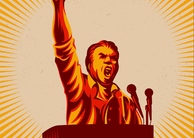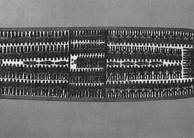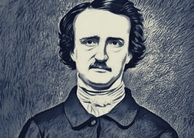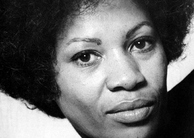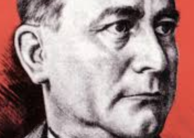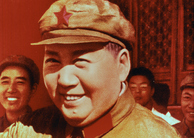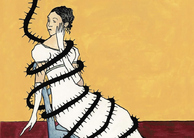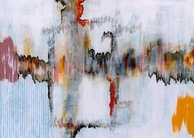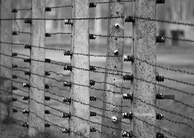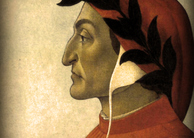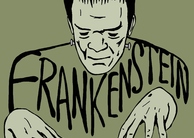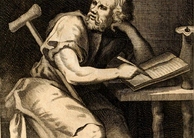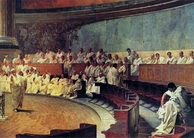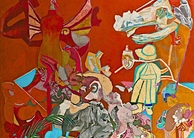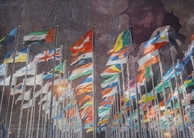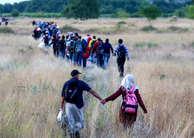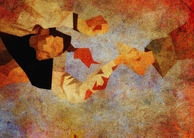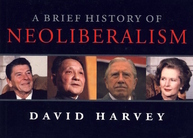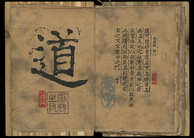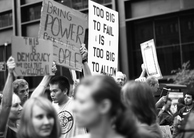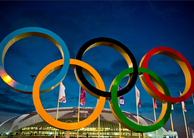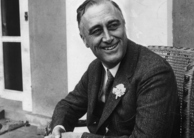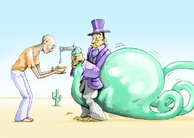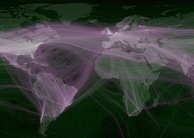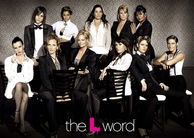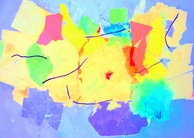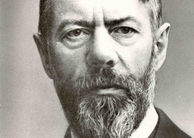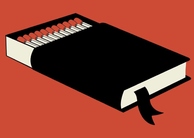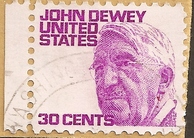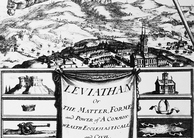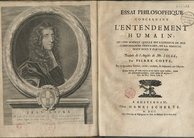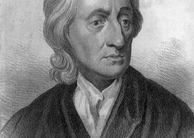|
Theory (tagged articles)
The keyword Theory is tagged in the following 114 articles.
2022, Vol. 14 No. 09
Woolfian Scholars regularly denote the moments where Woolf’s characters feel inexplicably connected and inseparable from one another as representing the spiritual and mystic beliefs of their author. I want to reframe this notion, considering... Read Article »
2022, Vol. 14 No. 09
The Goldfinch (2013) by Donna Tartt is a novel that explores the conditions of grief and escalating lengths characters will go to survive the traumas and mysteries of life. This story of guilt and loss—intermixed with love and longing&mdash... Read Article »
2022, Vol. 14 No. 04
British Poet Laureate Carol Ann Duffy’s The World’s Wife presents a fresh outlook on myths and fairy tales, by retelling them through sociosexually liberated women. The poems feature many themes such as murder, sexuality and childhood... Read Article »
2022, Vol. 14 No. 04
The 17th and 18th centuries saw a wide proliferation of aesthetic discourse through which the picturesque emerged to capture the type of beauty derived from the exchange of in vivo vigor for the spirit of artistic medium. While the metaphysical... Read Article »
2022, Vol. 14 No. 03
After World War II, America’s baby boom and rapid migration into cities sparked a damaging housing crisis. This marked a turning point in architectural style: the rise of modernism. Modernism prioritizes function above all else and believes... Read Article »
2022, Vol. 14 No. 02
In popular international relations (IR) Theory, knowledge production is often dismissed as an objective process between the researcher and the empirical world. This article rejects this notion and contends that the process of knowledge production... Read Article »
2022, Vol. 14 No. 01
To explore the relationship between history education and attitudes to war, narrative primes about World War II were read by 20 undergraduate students at California State University, Fresno. Afterwards, in the course of experimental interviews,... Read Article »
2021, Vol. 13 No. 10
This paper assesses the political preferences and ideologies of the Trump administration and how they influenced framing issues in a way that has underestimated the threats of right-wing militia groups in the United States. President Trump and officials... Read Article »
2021, Vol. 13 No. 09
In his book, The Prince, written in 1513, Niccolò Machiavelli argued for the autonomy of politics from religion and ethics, essentially creating the discipline of political science. His ideas enjoyed great popularity in the following centuries... Read Article »
2021, Vol. 13 No. 05
Foucault raised the concept of biopower in the first volume of The History of Sexuality and placed its emergence in the context of capitalism, but he did not fully tackle the relationship between biopower and capitalism. In this article, the author... Read Article »
2021, Vol. 13 No. 04
The question of what it means to be a gendered individual has been left unanswered in light of its variants. The feminist movement proceeding the Industrial Revolution propelled philosophical and literary works, such as Simone de Beauvoir’... Read Article »
2021, Vol. 13 No. 04
Following the enlightenment era, a new incarnation of politics created a uniquely democratic, liberal, egalitarian structure of government in Western democracies. In recent years, there has been an erosion of these qualities in favor of alternate... Read Article »
2021, Vol. 13 No. 03
Intersecting Edouard Glissant’s poetics with Hortense Spillers’ Theory of race, gender, and sexuality alchemizes a new conception of the Middle Passage’s spatiotemporality. With the slave trade haunting the living, this paper attempts... Read Article »
2021, Vol. 13 No. 01
Israel has increased the nation’s security presence around the Gaza Strip and in the West Bank. Here, the research project analyzes how transaction costs resulting from Israeli security policy impact the output of manufacturing activities... Read Article »
2021, Vol. 13 No. 01
Edgar Allan Poe is known for writing about a wide variety of controversial topics, such as death, murder, and addiction. However, one topic that his work tends to avoid is race and/or racism. Instead, he often chooses to include marginalized groups... Read Article »
2021, Vol. 13 No. 01
Through an examination of recent populist political formulations in Canada, this paper argues that prevailing understandings of right-wing populism are incomplete insofar as they occlude expressions of right-wing populism through regional and economic... Read Article »
2021, Vol. 13 No. 01
The postsecular turn of the late 1990’s refers to the emergence of a critical Theory which challenges an important modern assumption: that secular ideologies are inherently more valid and truthful than religious ideologies. Other developments... Read Article »
2020, Vol. 12 No. 11
This work aims to integrate postcolonial scholarship into some basic theoretical foundations of a mainstream economic curriculum. Noting the insufficiencies of neoclassical economics to deal with problems of cultural difference and priority, the... Read Article »
2020, Vol. 12 No. 11
“Just-war Theory,” as it is called, aims to guide action during warfare, so that states and individuals can act ethically. Because warfare is often analogized to epidemics, this paper will argue that just-war Theory can recommend how... Read Article »
2020, Vol. 12 No. 09
Intimate partner violence (IPV) is a serious public health issue that results in social, psychological, emotional, and physical consequences. Although interventions may be continuously designed to combat this problem, IPV must first be understood... Read Article »
2020, Vol. 12 No. 09
In On Photography, Susan Sontag derides photography for generating a sense of false objectivity. Focusing on the moral implications of taking a photograph, she explores the relationship between artist and subject, exposing photography as a medium... Read Article »
2020, Vol. 12 No. 09
Often regarded as the glorious palace showcasing contemporary world cinema (“Press Conference”), the Cannes Film Festival epitomizes the roles of an accreditor, an archaeologist, and a political activist. It jumpstarts the careers of... Read Article »
2020, Vol. 12 No. 07
For the past several years, the study of German jurist Carl Schmitt has exploded in China. Floria Sapio remarks that Schmitt has enjoyed “enormous currency among mainland Chinese scholars since the 2000s.”[1] Even though Schmitt has... Read Article »
2020, Vol. 12 No. 04
In his compelling account of juvenile justice, “Age of Culpability,” Gideon Yaffe provides a philosophically rigorous justification for the claim that “children should be given a break when they do wrong; they ought to be treated... Read Article »
2019, Vol. 11 No. 12
Research shows conflicting results when relaying how personality traits play into successful and satisfying romantic relationships. The focus has been on trait similarity (i.e. the “Birds of a Feather” concept) without a clear answer... Read Article »
2019, Vol. 11 No. 02
American politics today operates in an arena where truth and objective reality are bent to the designs of particular interests, powerful people and commercial profiteers. All facts are questioned; the truth has purposes. Populist and nationalist... Read Article »
2018, Vol. 10 No. 10
The value proposition in the commercial setting is the functional relationship of quality and price. It is held to be a utility maximizing function of the relationship between buyer and seller. Its proponents assert that translation of the value... Read Article »
2017, Vol. 9 No. 12
Climate change is already altering our biosphere and is projected to bring about monumental changes to our planet’s environment, changes which are unprecedented in human history. Numerous social groups have drawn upon a wide assortment of... Read Article »
2017, Vol. 9 No. 11
This article uses two decision-making theories – rational choice Theory and prospect Theory – to examine China’s resolution to intervene militarily in the Korean War. I argue that Chairman Mao Zedong was in a domain of loss both... Read Article »
2017, Vol. 9 No. 10
Empirical psychology first emerged as a scientific discipline during the eighteenth century when it was launched into the academic realm by being taught in universities, appearing as chapters in philosophy manuals, and debuting as the topic of scientific... Read Article »
2017, Vol. 9 No. 10
Political philosophers and theorists alike continue to debate if more enlightened populations would be of value or not. This piece will contribute to that dispute by claiming that an enlightened populace is integral to the progress of free-societies... Read Article »
2017, Vol. 9 No. 07
There has been extensive debate over the past few decades regarding the criteria by which we should measure distributive justice. In conceiving a just state of affairs it is imperative that we determine the most appropriate measure of the distributions... Read Article »
2017, Vol. 7 No. 2
Although terrorism has been present in the world for centuries, it is only since the 1980s that suicide terrorism has become an object of study for academics and an existing concern for government professionals. While discourses on suicide terrorism... Read Article »
2017, Vol. 9 No. 04
This piece examines the ideologies and tactics used by fascist governments to validate and enforce their authority through Michael Mann’s work Fascists. By explicating Kant’s view of autonomy and progress, found in “An Answer to... Read Article »
2017, Vol. 9 No. 04
Music functions as a source of healing in Toni Morrison’s Jazz, both to the bird who is inexplicably sad and for the broken relationship between Violet and Joe, the novel’s two main adult characters. The bird cheers up and regains its... Read Article »
2017, Vol. 9 No. 04
The relationships between power and rhetoric have been the subject of many recent studies, most notably from the conversation concerning “critical rhetoric” (McKerrow, 1989; Murphy, 1995; Ono & Sloop, 1992; Shugart, 2003; Zompetti... Read Article »
2017, Vol. 9 No. 03
The process of selecting a dissertation adviser can be accomplished in a number of ways. The importance, however, of this process should not be understated. This relationship between adviser and advisee often can be the difference between completing... Read Article »
2017, Vol. 9 No. 03
The Conceptual Access-Network Thesis proposed suggests that the development or success of any new internet-based product, service, or technology will ultimately be contingent upon how well it satisfies the criterion of providing access to or creating... Read Article »
2017, Vol. 9 No. 03
Anyone in pursuit of knowledge is bound to encounter sex somewhere along the way. In the early 19th century, a period during which sex was unspeakable, fiction writers developed a distinct penchant for the unknown.[2] Mary Shelley’s Frankenstein... Read Article »
2017, Vol. 9 No. 03
Not long after J.K. Rowling published the first Harry Potter book on June 26, 1997, The Boy Who Lived exploded into an international phenomenon. Teachers read Harry Potter and the Sorcerer’s Stone to wide-eyed students and parents read it... Read Article »
2017, Vol. 9 No. 03
Philosophers have long debated the meaning of virtuousness and the role that reason plays in achieving it. According to the Stoic philosophers Epictetus and Marcus Aurelius, virtue comes through a proper understanding of nature, its processes, as... Read Article »
2017, Vol. 9 No. 02
Given pervasive representations of its geostrategic and global economic significance, the Middle East constitutes an important area of political and academic study far beyond its geographical boundaries. A key debate underlying such research is... Read Article »
2016, Vol. 8 No. 12
In 1931, Kenneth Burke challenged the idea that literature and art were merely ornamental. “All of the verbal arts,” he explained, “including literature, drama, speech, pedagogy, and reportage, affect both social knowledge and... Read Article »
2016, Vol. 10 No. 1
In the past five years, millions of people have lost their homes, loved ones, and lives.2 The Syrian territory is now a battlefield, contested by multiple actors. The rise of the Islamic State underscores the hopeless nature of this bloody quagmire... Read Article »
2016, Vol. 8 No. 11
In the early 1990s, two terrorist organizations, Hamas and the Fatah-led Palestinian Liberation Organization (PLO), were using terrorism to promote their political plight of Palestinian self-determination. Although both organizations vowed to use... Read Article »
2016, Vol. 8 No. 11
In Federalist No. 34 Alexander Hamilton, arguing for the ratification of the United States Constitution, claimed that the Roman Republic had “attained to the utmost height of human greatness.”[1] The Roman Republic, at least an idealized... Read Article »
2016, Vol. 8 No. 11
The so-called Islamic State of Iraq and Syria (ISIS) – also known as ISIL, IS and Daesh – has during the last years disseminated videos throughout the Internet in a new recruitment and media strategy focusing on the destruction of cultural... Read Article »
2016, Vol. 8 No. 10
This quote by the early 20th century Lebanese poet Kahlil Gibran captures both the core idea and some of the implicit issues posed by what was later to be called the “risk society thesis” and was to have a massive impact on contemporary... Read Article »
2016, Vol. 8 No. 10
The relationship between feminism and socialism is extremely intimate but also immensely intricate. According to feminist poet Adrienne Rich (1977, p. 285), ‘the repossession by women of our bodies will bring far more essential change to... Read Article »
2016, Vol. 8 No. 10
In the immense field of scholarly work regarding defining nationhood, a raging debate exists between the conservative view of the nation and the constructivist view. A clear and definitive change in the conception of the ‘realness’ of... Read Article »
2016, Vol. 8 No. 09
Understanding the term 'terrorist' is a complex and controversial issue within both academic scholarship and mainstream literature. By adopting a post-structuralist approach to the study of 'terrorism,' we are able to dissect the terms and understand... Read Article »
2016, Vol. 8 No. 09
A doorbell rings. Off screen, we hear a sing-songy “Coming!” A woman dressed in a cerulean track suit rushes to the door, expecting to find her daughter home from school. Instead, she finds another woman, blonde and leather jacket-clad... Read Article »
2016, Vol. 8 No. 09
This paper is an attempt to navigate through existing theories of universalisation of human rights and existing justifications thereof. It is premised on several cultural and political notions that it takes as starting points, not as truisms, but... Read Article »
2016, Vol. 8 No. 09
Afro-Pessimism forwards a crucially important foundation with which anyone concerned with forming Black resistance strategy should navigate. It accurately understands that Black life exists outside of the traditional humanist metric, and Blackness... Read Article »
2016, Vol. 8 No. 08
Often called the “prince of the humanists” Erasmus of Rotterdam (1466-1536) was one of the most influential European philosophers and theologians of the early modern period. However, today he is often overshadowed by his more radical... Read Article »
2016, Vol. 8 No. 07
As Europe’s frontier with the Muslim East, Greece has been cast as backward, and not worthy of full sovereignty since the earliest years of its independence from the Ottoman empire. Greece's contradictory position as guardian of the origins... Read Article »
2016, Vol. 6 No. 2
Both gangs and police in Rio de Janeiro seemingly operate irrationally in an extended conflict, as it is highly unlikely that the state will make drug dealing legal, and it is also unlikely that gangs would be able to destroy the police through... Read Article »
2016, Vol. 7 No. 1
Preadolescence is a pivotal time for individuals as they develop their own set of values, attitudes, and beliefs. With children ages 11 to 14 reportedly watching nearly three hours a day of television, TV programming can be enormously influential... Read Article »
2016, Vol. 7 No. 1
Instagram allows users to share a snapshot of their lives with a mass audience in a matter of seconds. This capability and power has not gone unnoticed by celebrities, who are highly aware of the impact their social media accounts have on fans and... Read Article »
2016, Vol. 8 No. 05
As a founder of sociology, Max Weber influenced the social sciences immensely. In his “Politics as a Vocation,” Weber claims that one of the definitions of the state is its ability to employ legitimate violence as a means of control... Read Article »
2016, Vol. 8 No. 03
Sporting mega-events in Rio de Janeiro, including the 2014 World Cup and the upcoming 2016 Olympics, employ particular tactics of spatio-temporal scale-making to produce a utopic atmosphere of global camaraderie, modern urban development, and sporting... Read Article »
2016, Vol. 8 No. 03
Fear finds its place in the world through numerous forms, including natural disasters, genocide, war, trauma and countless other events which present lasting effects in the lives of those who maintain recollection. The research concerning the alteration... Read Article »
2016, Vol. 8 No. 02
In Developing a Critical Realist Positional Approach to Intersectionality, Martinez et. al. (2014) argue that Critical Realism (henceforth ‘CR’) solves what they identify as the methodological ‘crisis’ within intersectionality... Read Article »
2015, Vol. 6 No. 2
Instagram, a social media app, is becoming increasingly popular as a business and communication tool. Analyzing 12 posts on Dunkin' Donuts' Instagram account, this case study attempted to understand branding through framing Theory. The study found... Read Article »
2016, Vol. 8 No. 02
Michael Thompson, reviewing A Brief History of Neoliberalism by David Harvey, calls it ‘the world according to David Harvey’ (2005). This is an accurate remark: although erring slightly on the side of conspiracy, the book is a breathtaking... Read Article »
2016, Vol. 8 No. 02
Who is a woman? What does it mean to be a woman? Is she a mother-daughter-wife-sister? Or is she more than that? What is her role in society and how does it play out in various institutions? Does she really face oppression? If so, how? Is Feminism... Read Article »
2016, Vol. 8 No. 01
Within Lao Tzu’s Tao-Teh-Ching and Machiavelli’s The Prince, there are similar notions concerning how a ruler should maintain order and how he/she can be an effective leader. According to the former, it is best if people are blind to... Read Article »
2016, Vol. 8 No. 01
Conceiving neoliberalism as a form of constructivism, an ideological project rather than a doctrine prefigured by ‘human nature’, illuminates a promising path towards countering its impoverishing effect on both the citizen subject and... Read Article »
2016, Vol. 8 No. 01
Rational choice and exchange theories have been used to explain many phenomena in the field of sociological research. Although some literature has used such theories to explain sexual offenses, no research has attempted to make the connection between... Read Article »
2015, Vol. 7 No. 11
A review of literature on social movements highlights its many and sometimes conflicting definitions. Relying on Saba Mahmood’s Politics of Piety (2005) – an ethnographic account of grassroots women’s piety movement in the mosques... Read Article »
2015, Vol. 6 No. 2
Filmmaker Wes Anderson has developed a distinct aesthetic style that is easily recognizable through his use of striking color palettes. The purpose of this research was to draw conclusions about social stratification, social construction and the... Read Article »
2015, Vol. 6 No. 2
Every two years, the global spotlight shines on the Olympics and the nation hosting the worldwide event, particularly the country's record on human rights. This project looked at how two American newspapers, The New York Times and The Washington... Read Article »
2015, Vol. 6 No. 2
In an effort to understand how Americans regarded Adolph Hitler's influence in Germany and beyond as he navigated the country's political landscape, and ultimately established the Third Reich, this research examines his portrayal in American media... Read Article »
2015, Vol. 7 No. 06
The 1937 Recession is a lesser-known event overshadowed by the Stock Market Crash of 1929 and the Great Depression. Nonetheless, it is a subject of deep interest because it brought about an uncommonly sharp economic downturn during the depression... Read Article »
2015, Vol. 2 No. 1
In the present paper, reputation is approached as an idea involving status. We consider a multiproduct monopolist's product line and pricing decisions under the explicit assumption of two status externalities. The firm sells a low-end product and... Read Article »
2015, Vol. 7 No. 04
The beginning of any social relationship is often ambiguous (Edelmann, 1985, p. 195). If a social interaction proves to be troublesome, conflict may occur. While conflict is an inevitable facet of life, it is not necessarily a negative phenomenon... Read Article »
2015, Vol. 7 No. 04
The assertion that unconstrained power brings with it inevitable corruption has occupied theorists since the first considerations of authority. That the nature of man in unconstrained assemblage will lead to a “tyrannical abuse of power&rdquo... Read Article »
2015, Vol. 7 No. 03
Concern regarding the inequity and commodification apparently necessary for the capitalist system to thrive is not new. Marx, in his work Capital: Critique of Political Economy (1867), raised the idea of the fallibility of fetishism, including an... Read Article »
2015, Vol. 7 No. 03
When one analyzes recent LGBTQ advocacy, with its rhetoric of liberal normativity and visibility, the gay rights movement has chosen inclusion over revolution. Through the intersectionality of dominant forms, namely whiteness, patriarchy, and affluent... Read Article »
2014, Vol. 6 No. 09
Since the attacks of September 11th, the Western world has labeled al-Qaeda and its leadership as suicidal and irrational terrorists hating the Western 'way of life'[2]. This justified the American "War on Terror" and led Margaret Thatcher to declare... Read Article »
2014, Vol. 6 No. 09
This paper contrasts the philosophy of Michel Foucault and Jürgen Habermas to determine whether there is any point of substantial convergence between the two.[1] To do so, the essay first argues that the projects engaged in by each philosopher... Read Article »
2014, Vol. 4 No. 2
Prospect Theory, a behavioral economic Theory first proposed by David Kahneman and Amos Tversky in 1979, has evolved into a seminal Theory on risk decision-making applicable in a wide range of fields. Yet in both political science and international... Read Article »
2014, Vol. 6 No. 03
As a child, I was sheltered and not allowed to watch the Power Rangers or other such violent and crude television series. My parents divorced when I was two and my childhood was constantly in limbo between two seperate households. I sleep next to... Read Article »
2013, Vol. 4 No. 1
After years of economic downturn and recovery, the debate over stimulus packages and countercyclical policy continues globally. Proponents of such policies claim that the various stimulus packages and policy initiatives around the globe helped bring... Read Article »
2013, Vol. 4 No. 2
Film authorship has been a topic of debate in film Theory since the Cahiers du Cinema critics first birthed auteur Theory. Andrew Sarris used this Theory to categorize directors based on their level of artistic authorship, solidifying the idea that... Read Article »
2013, Vol. 5 No. 10
"The sense of the world must lie outside the world. In the world, everything is as it is, and everything happens as it does happen: in it no value does exist-and if it did exist it would have no value. If there is any value that does have value,... Read Article »
2013, Vol. 5 No. 03
Showtime's television show The L Word (2004-2009) follows a fictional group of lesbian, bisexual and transgender women living in Los Angeles, including Bette Porter (Jennifer Beals) and Tina Kennard (Laurel Holloman), who decide to have a baby together... Read Article »
2013, Vol. 5 No. 02
This paper analyzes the evolution of the construct known as Post-Traumatic Stress Disorder. Specifically, it examines the ways in which its name has changed over millennia and how soldiers suffering from this mental condition were treated by society... Read Article »
2013, Vol. 5 No. 02
The popular television show Glee (2009-current) features a fictional glee club, the New Directions, which – in the words of the choir director character – is made up of students from “just about every race, religion, sexual orientation... Read Article »
2012, Vol. 2 No. 1
The research completed aimed to show that the idea of fair trade, using the example of goals for the chocolate industry of the Ivory Coast, can be described as an example of the economic ideal which Karl Marx imagined. By comparing specific topics... Read Article »
2012, Vol. 4 No. 10
As humans, we are compelled to ask the questions, why do we exist? How do we exist? Even, how can I know that I am using this existence in the correct way and with the right intentions? Even the earliest of the ancient philosophers pondered these... Read Article »
2012, Vol. 4 No. 08
Confined to prison following her inability to pay a five-pound fine, Selina Davis situates herself outside a traditional system. She plays the role of “other” in interactions of race, class, and gender. Her narrative perspective drives... Read Article »
2012, Vol. 4 No. 05
The project of just war Theory has enjoyed a long and distinguished pedigree, dating back to the ancient Greco-Roman philosophy. Over the centuries, it has, however, commanded a substantial influence from Christianity, enlightenment philosophy,... Read Article »
2012, Vol. 4 No. 03
Due to their different subject matter, the way in which social and natural science inquiries are conducted differs. For some, this difference is constituted in a greater reliance upon values in the social sciences than in the natural. This essay... Read Article »
2012, Vol. 4 No. 01
English literature is all-encompassing: it ranges from societal utilitarianism of the didactic through to the celebration of individualism embodied in post-modern work. Literature, as part of a larger cultural body, is both instructive and entertaining... Read Article »
2011, Vol. 3 No. 11
Gestalt therapy is an empowering and germane framework for psychotherapy. It is uplifting for both practitioners and patients. Its objective is to bring about new awareness so that transition and problem-solving is possible. Clients are immediately... Read Article »
2011, Vol. 5 No. 1
When should the United States intervene militarily in weak countries? This is a topic of pressing international concern because the United States keeps intervening in weak countries. We are currently involved indirectly in Libya and very deeply... Read Article »
2011, Vol. 3 No. 10
The observable tendency of a person to repeat the use of drugs, and continue use in spite of possible or real negative consequences, can be partially explained by examining several learning theories and learning with respect to neurological associative... Read Article »
2011, Vol. 3 No. 09
Today, approximately 50% of the world, over three billion people, lives on less than $2.50 U.S. dollars a day. Despite poverty’s wide reaching affects, little research has been conducted that compares the framing of international and domestic... Read Article »
2011, Vol. 3 No. 04
International Humanitarian Law, based on the concepts of jus ad bello, is defined to be the law of war. This means that the laws involved are meant to be active in a situation of an armed conflict or during war. However, just like international... Read Article »
2011, Vol. 3 No. 04
Charlotte Perkins Gilman’s novella Herland explores a separatist feminist utopia. Published in 1915, Herland begins when three men – a womanizer, a Southern gentleman fixated on woman as domestic angels, and a narrator who represents... Read Article »
2011, Vol. 3 No. 03
John Dewey was an ingenious and significant figure whose criticisms spanned a wide range of disciplines, including philosophy, education, politics, aesthetics, and ethics. The late American philosopher Richard Rorty, in Philosophy and the Mirror... Read Article »
2011, Vol. 3 No. 01
The search for the criminal personality or super trait has captured both the minds and imaginations of academics and the wider community (Caspi et al., 1994). Partly, this is due to a stubborn aversion to the notion that normal, regular people rape... Read Article »
2010, Vol. 2 No. 12
In his seminal text, Leviathan, the philosopher Thomas Hobbes offers what was then a radically novel conception of the origins of civil government. Hobbes’ ideas of the commonwealth are predicated upon his views of human nature and the state... Read Article »
2010, Vol. 2 No. 11
Fascism cannot adapt to, and exist under, certain prominent, contemporary conditions. Specifically, it cannot adapt to the strong democracies in which extreme right parties operate, nor to the ideology of radical Islamic groups. This paper begins... Read Article »
2010, Vol. 2 No. 10
Today companies strive to find new strategies and ways to dominate their markets. With the rapdily changing technological realm, companies are faced with a great many options of how to conduct their business. This also means that enterprises that... Read Article »
2010, Vol. 2 No. 10
We live in a time today similar to the beginning of the 20th century; then, industrial forces were rapidly changing (as seen in the industrial revolution and the rise of the Western nation-state) in ways that parallel our current state of economic... Read Article »
2010, Vol. 2 No. 08
For centuries philosophers have struggled to define personal identity. In his 1690 work An Essay Concering Human Understanding, John Locke proposes that one's personal identity extends only so far as their own consciousness. The connection between... Read Article »
2010, Vol. 2 No. 02
“You have created a Museum; carefully assemble here every masterpiece which the Republic [of France] already possesses…and the entire world will be eager to deposit its treasures, its singularities, its accomplishments; and the documents... Read Article »
2010, Vol. 2009/2010 No. 1
From Heraclitus to Marx, intellectuals have often recognised changes in the flow of history. Certain periods tend to be more dynamic than others but, in the end, all things move. Just as the past ninety years have been some of the most memorable... Read Article »
2009, Vol. 1 No. 12
Art Nouveau is the so-called “modern style” developed at the turn of the 19th century. Although it is dated roughly between 1890 and 1910, its first true recognition as an important new movement in art and design occurred at the Universal... Read Article »
2009, Vol. 1 No. 12
Political philosopher and social psychologist, John Locke was an outspoken supporter of equal rights within a governed society. He espoused the natural rights of man, namely the right to life, liberty and property, and he articulated that every... Read Article »
2009, Vol. 1 No. 11
Imagine the vast spectrum of all the cultures in the world. Listen to the music—from the gentle drum beats of Africa, to the melodic didgeridoo of Australia, to the scream of the electric guitar. Taste the curry from India, the coconut milk... Read Article »
2009, Vol. 1 No. 11
In Between Men: English Literature and Male Homosocial Desire, Eve Sedgwick proposes the idea that not only women, but also men, can travel along a social spectrum that ranges from friends to lovers. However, she argues that the male homosocial... Read Article »
Expedited Article Review
Submit an article and get a decision fast.
If you need a fast decision, INQUIRIES Journal offers expedited processing of your submission for a small fee. Depending on the expedited review option you choose, you can receive a decision in as few as 5-days.
In addition to a shorter review period, the fee supports the journal's continued operation and open-access publishing model. Standard submissions are always free. Submit Now » - Submit an Article to Inquiries Journal -
|



















